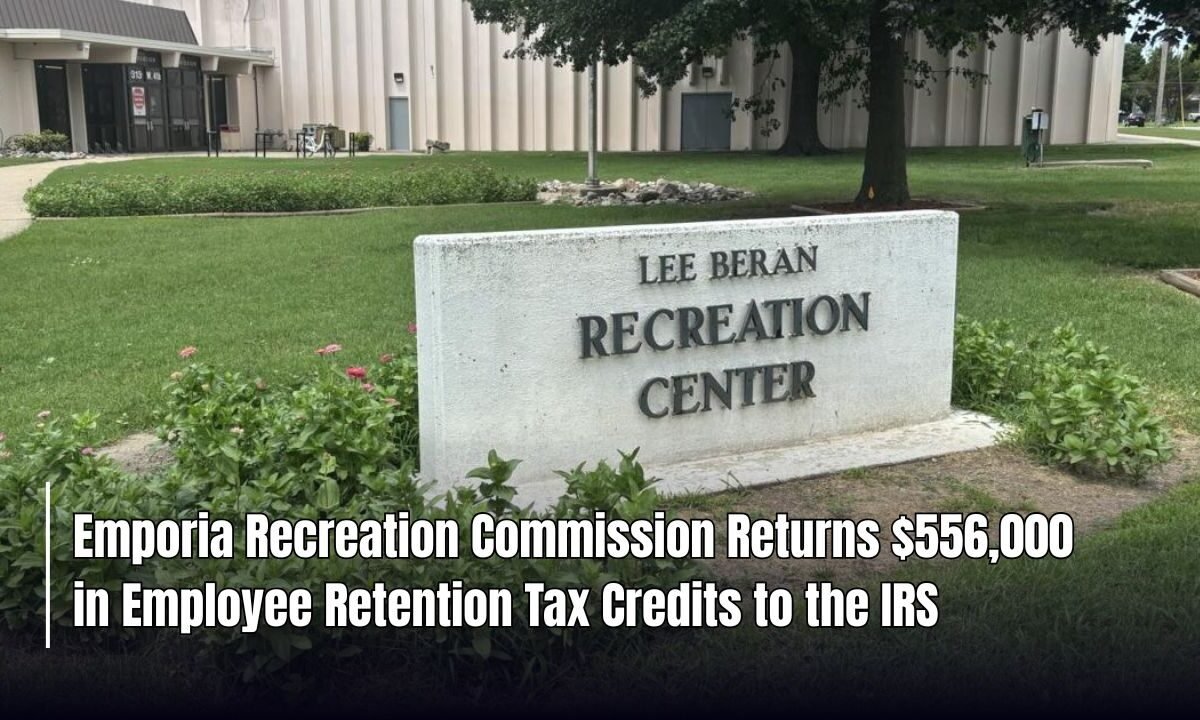The Emporia Recreation Commission has recently decided to return $556,000 in Employee Retention Tax Credits (ERTC) to the Internal Revenue Service (IRS) following a special meeting held on Tuesday evening.
Background: The ERTC Application Process
In 2023, the Wright CPA Group, the accounting firm that works with the Emporia Recreation Center, advised the commission to apply for the Employee Retention Tax Credits.
This initiative, which was designed to support businesses during the pandemic, resulted in the commission receiving a total of $700,000 from the 2020 and 2021 tax years.
Disqualification and Decision to Return Funds
However, in 2023, the commission received a letter indicating that it did not meet the eligibility requirements to retain the credits. This was due to its classification as a quasi-governmental authority, rather than a fully governmental agency.
Amanda Gutierrez, the Emporia Recreation Center Director, explained that while they were aware the situation was ambiguous, they decided to pursue the credits and “see what happens.” Despite this, they were informed that governmental agencies were not eligible for these credits.
Refund Process and Avoiding Potential Penalties
In July 2024, the commission sent back $171,000, which corresponds to three quarters of the 2020 credits.
Although the IRS had not issued an official request to return the 2021 credits, Gutierrez and the commission opted to send the funds back voluntarily. This decision was made to prevent the risk of paying fines or interest on the refunded amount.
The decision to return the $556,000 reflects the commission’s commitment to staying compliant with tax regulations and avoiding potential penalties.
While the initial application for the Employee Retention Tax Credits was an attempt to support the center through uncertain times, it ultimately became clear that the quasi-governmental status of the commission disqualified it from receiving such credits.




